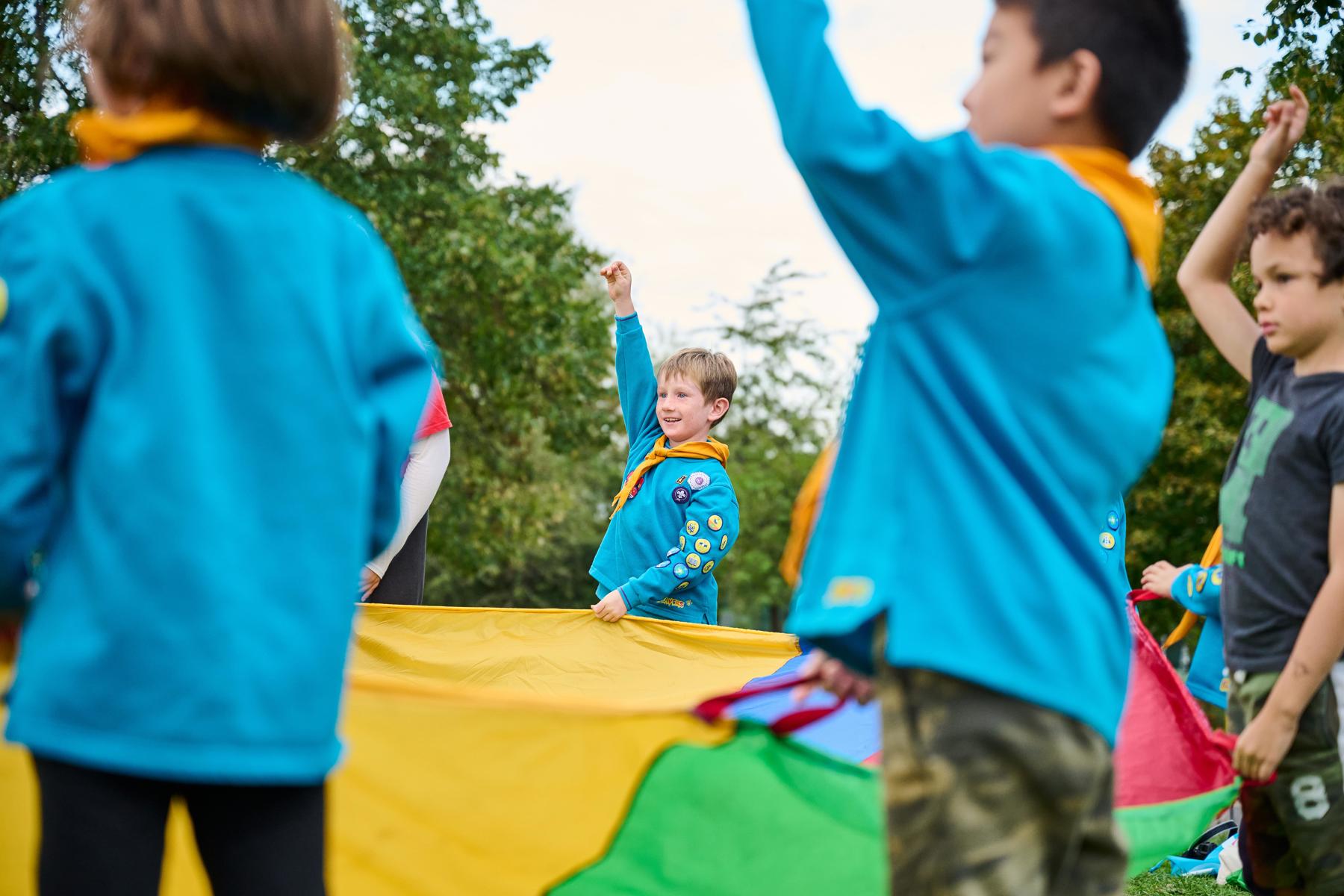Making Scouts accessible: Rose's story
Find out how Rose, a Beaver Section Team Leader, made her group more accessible for disabled people.

Rose has been part of Scouts since joining as a Cub. She’s now a Beaver Section Team Leader, and she’s keen to make Scouts more accessible and inclusive for everyone.
Rose was already volunteering when she became disabled. She uses mobility aids and is the only volunteer in her group with accessibility needs. At the local church, where Rose’s group meets, there are already some accessibility friendly things in place. This includes a disabled toilet, ramped exits, and paved areas to help people with mobility disabilities get around, both safely and easily.
As a disabled volunteer, Rose feels welcomed and accepted in Scouts. The people supporting Rose at Scouts regularly speak to her about what she needs and put plans in place to support her. For example, the group started meeting in a different room, so Rose didn’t have to use the stairs. When going on trips, the other volunteers always make sure the places they’re visiting are accessible too.
Challenges
While Rose’s group have been supportive, she’s faced some challenges along the way. Some Scout events haven’t always been accessible for her. Carrying around a large bag on jamboree isn’t easy, especially for Rose when she’s using her mobility aids.
Rose found it difficult to accept she needed help, and she has struggled with her mental health. Once Rose started to accept her disability, she recognised there were things that needed to change at her Scout group to make her volunteering experience more positive.
One of the things Rose has done to help her mental health is to be more flexible with her volunteering commitments – something which her co-volunteers have supported her to be.
Successes
Having been in Scouts for most of her life, Rose didn’t want her accessibility needs to be the reason she left. So, Rose helped to make things better at her own group by introducing the following changes:
- The indoor and outdoor lights have been made brighter so it’s easier to see. They’re now also using energy-saving LED bulbs to become more eco-friendly.
- New doors have been installed, which are lighter and easier to open.
- The locks have been placed at a lower height, so they’re wheelchair accessible.
- The group’s main storage space has been moved downstairs, so you don’t have to use the stairs to access it. More storage facilities have been added too, so the space is kept tidier and making it safer to move around.
- The cupboards in the kitchen have been lowered, so they’re easier to access.
With support from various grants and fundraising sources, Rose’s vision for a more inclusive Scouts experience has quickly become a reality. Rose’s efforts are making a real difference for everyone involved.
Rose feels supported by her fellow volunteers who’ve listened to her ideas, helped and encouraged her. They’ve been open to her suggestions and they understood why the building needed to be more accessible.
Now, the group’s more accessible to everyone who uses the building, making for a more inclusive and welcoming environment.
Rose’s top tips
- Listen to people with accessibility needs and offer them support based on what they’ve said. Always ask, rather than presume or guess, as people know what they need best. Remember, everyone’s experience and ability is unique.
- Do your own research into the person’s disability to improve your own knowledge.
- Be open, flexible and responsive. Disabled people won’t ask for things they don’t need. They just want their needs to be met, so they can take part.
- Think about changing your meeting place, so it’s more accessible.
- Always be open and allow others to support you, especially if you need something changing to help you access Scouts.
- Make use of grants and fundraising to help make changes. Rose used funding from local businesses; and group fundraising, as well as grants, including The National Lottery Fund; Tesco Blue Token; local council grants; government grants. You find some useful resources on the Scouts website to help you look for funding and write funding applications.
The future
Rose now feels confident to be an advocate for her own needs in other areas of her life too. She knows she doesn’t need to settle for less and wants to carry on making even more improvements at Scouts.
In the future, Rose wants to:
- Help groups organise accessible local and international trips that meet the needs of disabled Scouts and adult volunteers.
- Fundraise to help groups who want to make their meeting places, camps, and activities more accessible.
Rose’s hard work has meant she can still enjoy her volunteering role in a way that benefits and includes her. Rose has helped disabled people to feel welcome at her group, and she feels proud to be part of the team.
Rose’s story shows that together we can break down barriers and make Scouts a fun, accessible and inclusive experience for everyone.